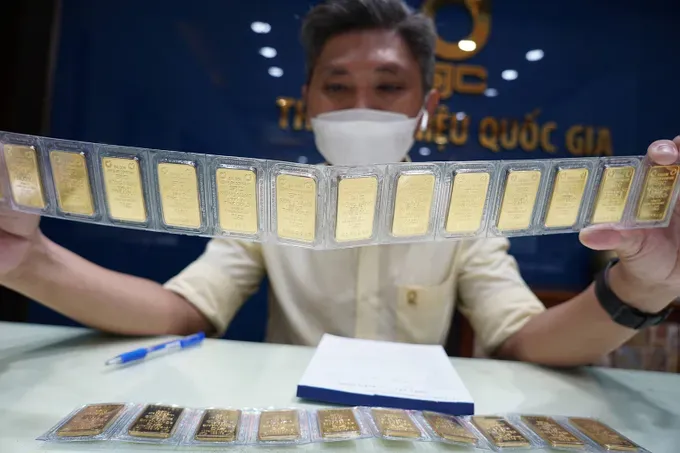
On August 26, the Government issued Decree No.232/2025/ND-CP, which amends and supplements a number of articles of the seminal Decree No.24/2012/ND-CP, dated April 3, 2012, concerning the management of gold business activities.
A pivotal provision of the new decree is the repeal of Clause 3, Article 4 of the original Decree 24, thereby formally eliminating the state monopoly on the production of gold bars, as well as the export and import of raw gold for production purposes. This amendment facilitates a fundamental shift from a state monopoly to a licensing mechanism for gold bar manufacturing.
The new decree also establishes clear conditions for obtaining a production license. Accordingly, an enterprise may be considered for a license by the State Bank of Vietnam when it meets all requirements, which include possessing a valid license for trading gold bars, having a minimum charter capital of VND1 trillion (approximately US$40 million), and having no record of administrative sanctions related to gold business activities.
For commercial banks, the conditions include holding a gold bar trading license and having a minimum charter capital of VND50 trillion ($2 billion).
Thus, after 13 years of operation under the old framework (2012-2025), Decree 24 has been officially amended to align with current market realities.
Dr Nguyen Tri Hieu, a finance and banking expert, assessed the new decree as both necessary and appropriate. He explained that a prolonged supply shortage, occurring amidst high global price volatility, has caused domestic gold prices to consistently and significantly exceed world prices, with the premium at times reaching as high as VND20 million ($758) per tael.
“To narrow this gap, the fundamental solution is to ensure an abundant and stable supply for the market, which will help connect the domestic and international markets”, Dr Hieu stated.
He further argued that the State can effectively control raw gold imports through a transparent quota system that is regulated according to actual demand while ensuring macroeconomic balance.
“If this is accomplished, it will curb smuggling, reduce foreign currency leakage, and restore market confidence”, he added. “When the gold market becomes transparent and competitive, people will be less prone to speculative behavior driven by rumors.”

On the same day the decree was issued, the domestic gold market reacted with record-breaking price surges. During the trading session on August 26, SJC gold bars were listed by local enterprises at VND126.1 – 127.7 million per tael (buy-sell) ($4,782 – 4,843).
By 4 p.m., one major gold shop in HCMC was listing the selling price at a new all-time high of VND128 million per tael ($4,854), marking the seventh time the record has been broken since the beginning of August. Gold rings also saw a significant price increase.
Meanwhile, the world gold price hovered around $3,373 per ounce. After conversion, this is equivalent to approximately VND107.5 million per tael, leaving the domestic price with a staggering premium of over VND20 million per tael.
While international gold prices have been largely stable, domestic prices have climbed almost independently. The primary cause is a local supply-demand imbalance.
The supply of gold bars is scarce, and citizens tend to hoard their holdings. After a period of waiting for prices to drop, many have lost patience and resumed buying, further fueling demand. This imbalance has created a price paradox. When global prices fall sharply, domestic prices only edge down slightly, yet when global prices inch upward, local prices often soar.
The new Decree No.232/2025/ND-CP also introduces a new regulation requiring that any gold transaction by a single customer of VND20 million or more in one day must be conducted via a bank payment account.
According to Assoc Prof Dr Nguyen Thuong Lang, an economist at the National Economics University, whether the abolition of the monopoly will lead to lower domestic prices depends on many factors.
However, he affirmed that ending the monopoly mechanism will inherently increase supply and allow suppliers to operate on a more free and equal basis. This, he stated, will ultimately serve the final goal of ensuring the legitimate rights of the people in buying and storing gold, while achieving both gold market stability and broader macroeconomic stability.
























